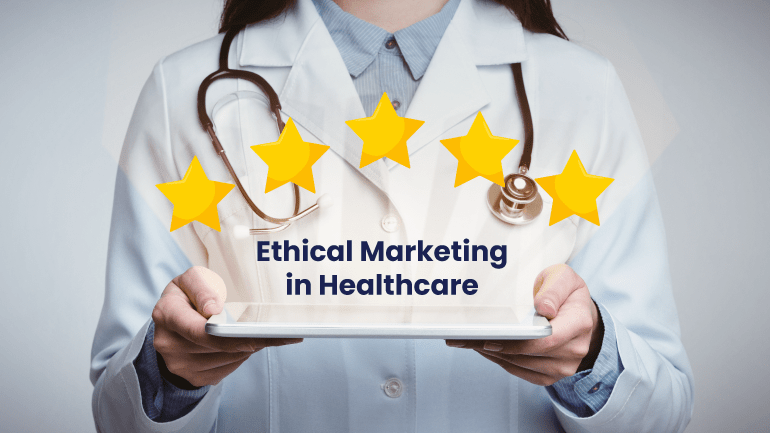

Balancing Compassion and Commerce: Navigating the Landscape of Ethical Marketing in Healthcare
In today’s interconnected world, where information flows freely and consumers are more discerning than ever, ethical marketing has become an indispensable aspect of every industry. Within the realm of healthcare, where the stakes are particularly high and the relationship between providers and patients is built on trust, ethical marketing practices are not just recommended but essential.
Ethical marketing in healthcare revolves around the principle of prioritizing patient welfare above all else while still achieving business objectives. It involves transparency, honesty, and integrity in all marketing endeavors, ensuring that patients receive accurate information and are empowered to make informed decisions about their health. Let’s delve deeper into what ethical marketing in healthcare entails and why it’s crucial in today’s landscape.
Ethical marketing in healthcare revolves around the principle of prioritizing patient welfare above all else while still achieving business objectives. It involves transparency, honesty, and integrity in all marketing endeavors, ensuring that patients receive accurate information and are empowered to make informed decisions about their health. Let’s delve deeper into what ethical marketing in healthcare entails and why it’s crucial in today’s landscape.
Truthful and Transparent Communication
Ethical healthcare marketing starts with transparent and truthful communication. This means providing accurate information about services, treatments, and outcomes without exaggeration or misleading claims. Patients rely on healthcare providers to provide them with honest guidance and information, and any deviation from this undermines trust and can have serious consequences for patient health.Respecting Patient Privacy
Patient confidentiality is sacrosanct in healthcare. Ethical marketers must adhere to strict guidelines regarding patient privacy and data protection. This includes obtaining consent before using patient testimonials or sharing any personal health information in marketing materials. Respecting patient privacy not only upholds ethical standards but also fosters trust between patients and healthcare providers.Avoiding Exploitative Tactics
Healthcare marketing should never prey on patients’ vulnerabilities or exploit their fears for commercial gain. This includes refraining from using fear-based tactics or manipulating emotions to promote services or products. Instead, ethical marketers focus on empowering patients with knowledge and resources to make informed decisions about their health.Educational Content and Empowerment
Ethical healthcare marketing prioritizes education and empowerment. Providing patients with valuable, educational content not only helps them understand their health conditions better but also positions the healthcare provider as a trusted resource. Whether through blog posts, videos, or social media campaigns, ethical marketers aim to empower patients to take control of their health journey.Maintaining Professional Boundaries
Healthcare providers have a duty to maintain professional boundaries in their marketing efforts. This means refraining from engaging in inappropriate relationships with patients or using their position of authority for personal gain. Ethical marketing requires a clear separation between professional responsibilities and personal interests.Social Responsibility and Community Engagement
Ethical healthcare marketing extends beyond individual patient interactions to encompass social responsibility and community engagement. Healthcare providers have a responsibility to contribute positively to the communities they serve, whether through supporting public health initiatives, participating in community events, or providing pro bono services to those in need.Compliance with Regulatory Standards
Ethical healthcare marketing involves strict adherence to regulatory standards and guidelines set forth by governing bodies such as the Food and Drug Administration (FDA) or the Federal Trade Commission (FTC). This includes ensuring that marketing materials are truthful, not misleading, and comply with all applicable laws and regulations.If you would like to learn more about how our solutions can benefit your practice, please do not hesitate to contact us at +27 11 719 2000 or via email at info@solumed.co.za. Our team of experts are ready to assist you in optimising your practice operations and providing the best possible experience for your patients.



